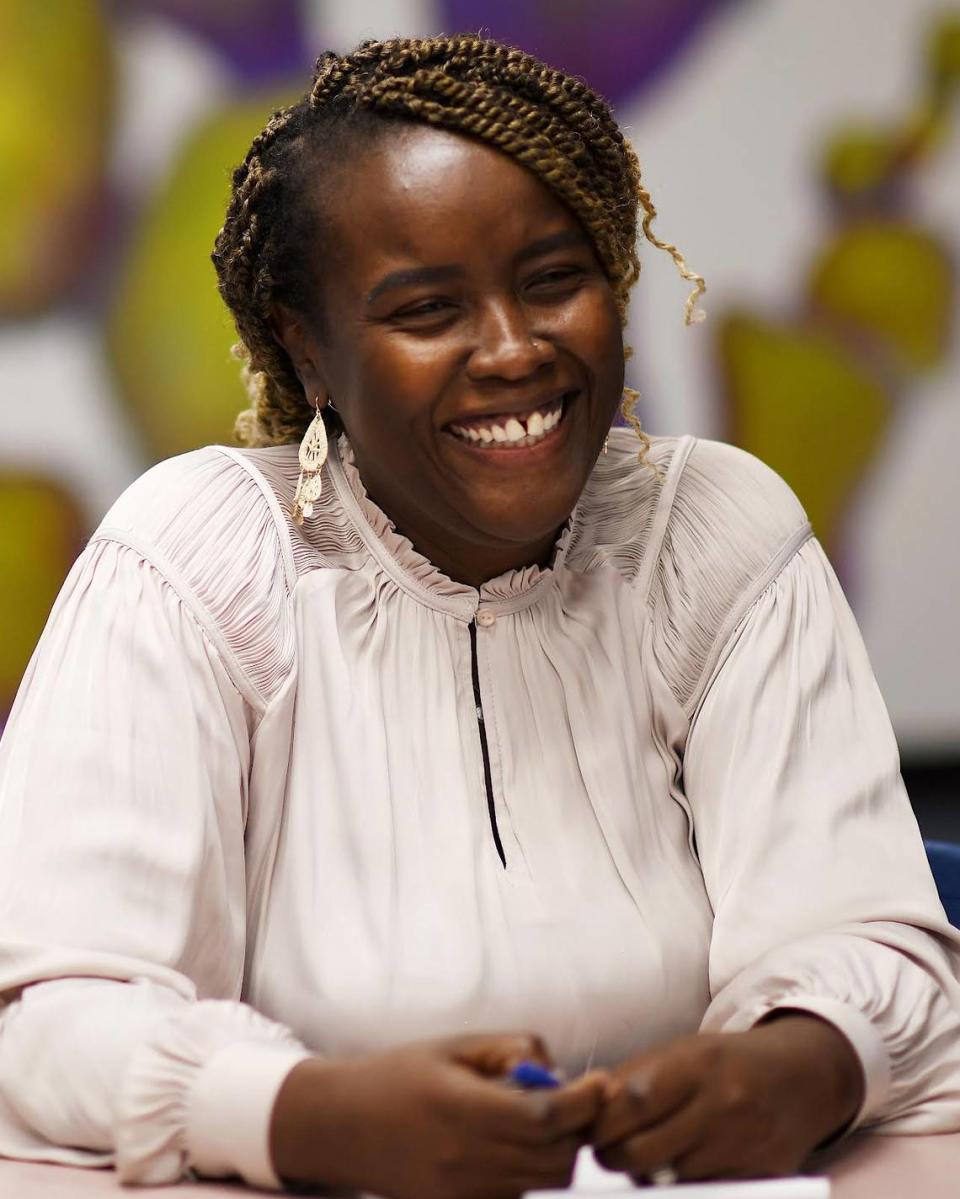U.S. humanitarian parole program is compassionate, practical and saving lives | Opinion
Chache la vie, detwi la vie.
You can lose your life while searching for a better one. I’ve heard this Haitian Creole saying ever since I can remember. In the 20th century, it became embedded in our language and culture, as so many Haitians drowned while fleeing our homeland, trying to reach America. It is a constant reminder of the dangers that Haitians continue to face when seeking safety.
The Biden administration implemented a humanitarian parole process for Cubans, Haitians, Nicaraguans and Venezuelans earlier this year that allowed sponsors in America, like myself, to extend a safe route for our family and community members. As a result, the risk of these journeys was significantly reduced. Now, with some in Congress suggesting drastic limits on parole authority and asylum protections, I fear more people once again will face death when seeking better, safer lives.
Through my work with the International Rescue Committee (IRC) and through my family and friends, I have heard many horrific stories about the migration journey. I cannot forget the stories of the small child killed by a speeding truck, the woman who realized she was drawing water from a river strewn with bodies, the traumatized child who cried through the night and the survivors haunted by travelers they couldn’t save.
As a child, I remember celebrating when someone left Haiti to pursue better opportunities. But now leaving is not about opportunity. People are risking their lives because the situation at home is intolerable. Hunger, natural disasters, political turmoil and brutal gang violence have created a deadly humanitarian crisis in Haiti.
When my brother called me from Haiti, he had reached his breaking point after years of fear and danger. He needed to leave. But when I heard that he would travel through the Darién Gap, one of the world’s most dangerous migration routes, my heart sank. I would happily host him here in the United States, but I did not know if he would survive the deadly journey. I pleaded with him not to take that dangerous route.
When humanitarian parole for Cuba, Haiti, Nicaragua and Venezuela was announced in January, it was like a miracle. Through the program, my brother finally had the chance to safely fly here to the United States. Now, he is happily reunited with our family and safe. People who arrive through humanitarian parole can apply for permission to work, giving them a way to support themselves. He is currently learning English and working to support his family.
My brother is not alone in seeking safety through this program. With the parole process in place and with some access to asylum, the number of Haitians making potentially dangerous crossings of the southern U.S. border outside of a port of entry sharply decreased, according to U.S. Customs and Border Patrol.
When safe routes are available and accessible, people will use them.
The parole process has limitations, however. It is only available in just a few countries, and the passport requirement can be a significant barrier for people fleeing persecution. Parole should be a complement to, not a substitute for, the asylum system.
As interest in the process has grown and the situation abroad deteriorated, the wait for the limited parole slots skyrocketed. Some people, including my family, are so desperate to get out that they are asking whether children could take their spots, to at least save their lives.
If Congress or the courts cuts off these humanitarian parole processes, it will be a terrible and counterproductive mistake. Restricting parole would take away what could be a key piece of a humane and orderly process. It will push people back to risky journeys and dangerous border crossings when safe routes are needed now more than ever.
Chache la vie should not mean detwi la vie.
Lorsynsha Tilus is a Community Engagement and Advocacy Coordinator with the International Rescue Committee (IRC) in Arizona.


